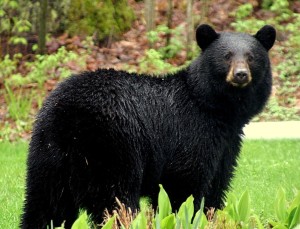Foraged food is growing in popularity. And safety is a concern.
A couple of months ago, Marcus Plescia, director of the Mecklenburg County Health Department told Kathleen Purvis of the Charlotte Observer, ‘We want restaurants to be creative and experimental. We also want them to be safe. There’s got to be somebody who can make sure the restaurants that want to do foraging are doing so in a safe way.’
Stuff like wild-grown mushrooms, ramps and game carry different risks because they aren’t in a managed system or environment.
Misidentify a mushroom and a customer can die.
TVO reports that some folks in Ontario want to serve wild game in restaurants. According to CDC, wild game (especially bear meat) continues to be an important source of trichinosis in the U.S..
The first time chef Michael Hunter tasted wild turkey — truly wild, not farmed —it blew his mind. The flavours were unlike any he had tasted before.
“It’s just totally different. But also the meat is different – a wild turkey was my first experience eating wild game and compared to the turkey dinners I’ve grown up eating it’s totally different — the meat is dark, the fat is yellow, the flavour is just incredible,” Hunter says.
It’s the kind of experience the co-owner of Toronto’s Antler Kitchen Bar would love to bring to his restaurant, but can’t.
Wild meat is legal to give away, so long as it has been properly prepared by a licensed and inspected butcher. A First Nations-run wild food bank in Sudbury does just that, accepting donated game from local hunters and giving it to anyone in the community in exchange for an offering of tobacco.
Some other provinces have already lifted the prohibition on sale of wild game. Newfoundland and Labrador and Nova Scotia both allow the sale of wild game in restaurants. The regulatory regime in those provinces requires hunters to have licences and tags for the animals they kill, and that restaurants be specifically licensed to serve wild game.
“As long as it’s regulated, the population of animals is not diminished. I don’t want to sell wild game in the restaurant all the time — I don’t think it should be available as a menu item,” Hunter says. “I just like to be able to do it sometimes or have a feature or have it as an option for people to try.”
